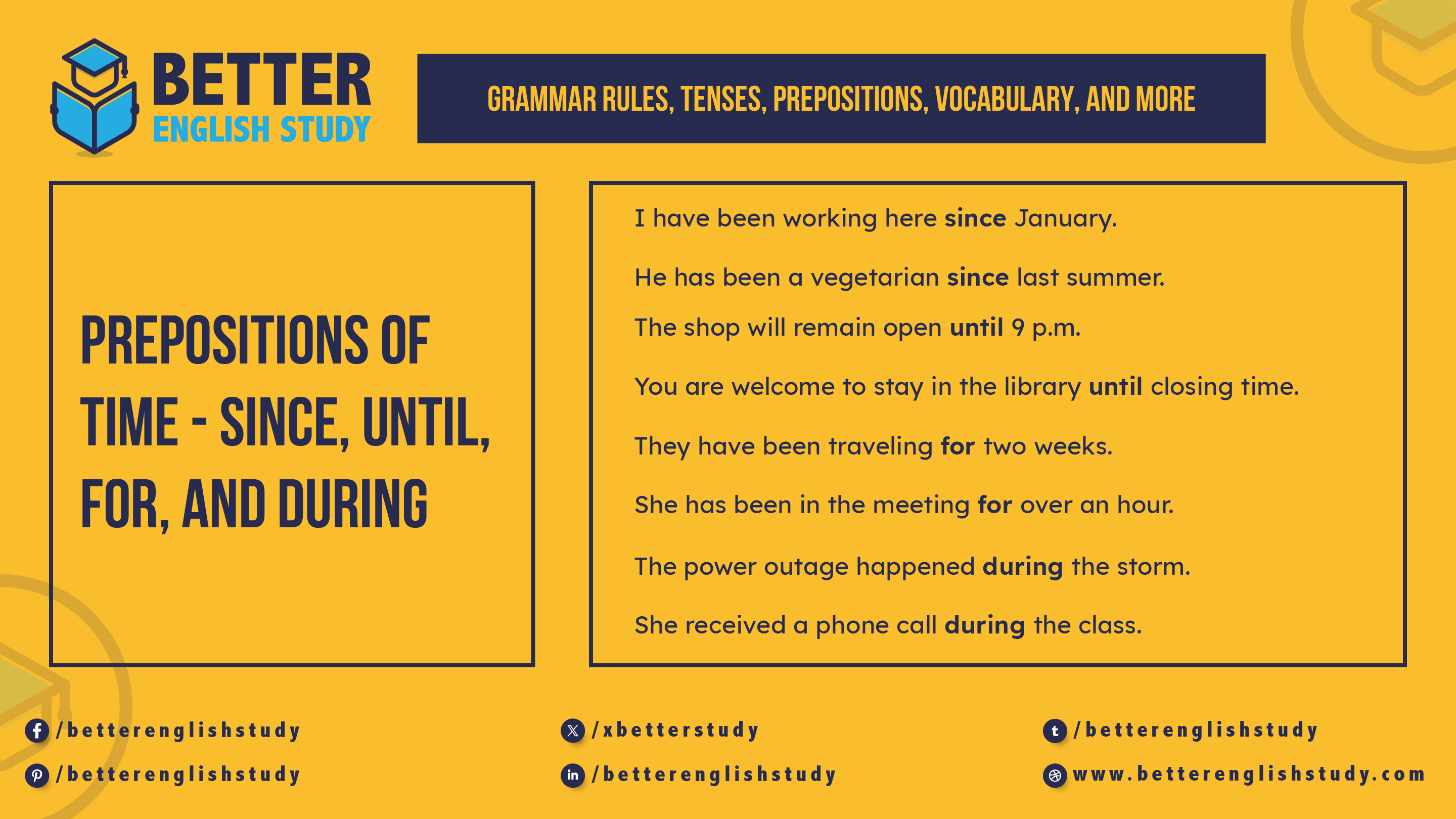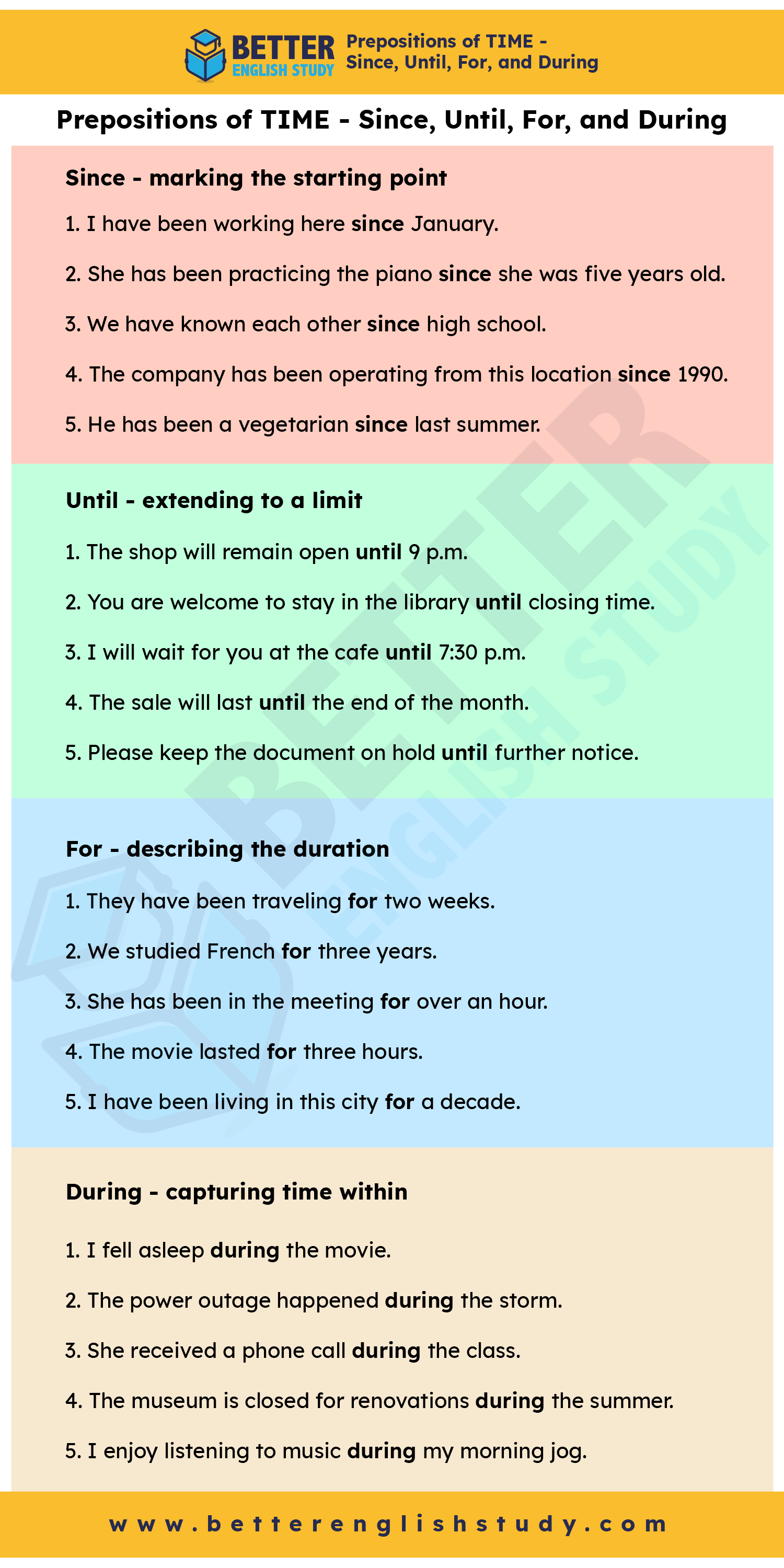
In the intricate tapestry of English grammar, prepositions play a crucial role in providing clarity and context. When it comes to expressing time, mastering prepositions like “since,” “until,” “for,” and “during” can significantly enhance communication.
In this article, we will delve into the nuanced usage of these prepositions with time, accompanied by examples to facilitate a comprehensive understanding.
Since – marking the starting point
The preposition “since” is employed to indicate the starting point of a particular moment or period.
Example sentences:
- I have been working here since January.
- She has been practicing the piano since she was five years old.
- We have known each other since high school.
- The company has been operating from this location since 1990.
- He has been a vegetarian since last summer.
“Since” is used to pinpoint the initiation of an action or state and is often paired with a specific point in time.
Until – extending to a limit
The preposition “until” is utilized to express the continuation of an action or state up to a specified limit or point in time.
Example sentences:
- The shop will remain open until 9 p.m.
- You are welcome to stay in the library until closing time.
- I will wait for you at the café until 7:30 p.m.
- The sale will last until the end of the month.
- Please keep the document on hold until further notice.
“Until” signifies the temporal extent of an activity or condition, emphasizing a limit or endpoint.

For – describing the duration
The preposition “for” is employed to denote the duration of an action or state.
Example sentences:
- They have been traveling for two weeks.
- We studied French for three years.
- She has been in the meeting for over an hour.
- The movie lasted for three hours.
- I have been living in this city for a decade.
“For” emphasizes the length of time an activity has been ongoing, highlighting a period or duration.
During – capturing time within
The preposition “during” is used to specify the time within which an event occurs.
Example sentences:
- I fell asleep during the movie.
- The power outage happened during the storm.
- She received a phone call during the class.
- The museum is closed for renovations during the summer.
- I enjoy listening to music during my morning jog.
“During” helps focus on the temporal occurrence of an action or event, indicating the time frame in which it transpires.
As we navigate the intricate terrain of time-related expressions, a firm grasp of prepositions such as “since,” “until,” “for,” and “during” is essential for effective communication.
By incorporating these prepositions into our language, we convey temporal relationships with precision and enhance the overall clarity of our expressions.
Whether marking a starting point, setting a limit, indicating duration, or capturing moments within, these prepositions provide the linguistic tools needed to navigate the ever-flowing river of time in our conversations.
